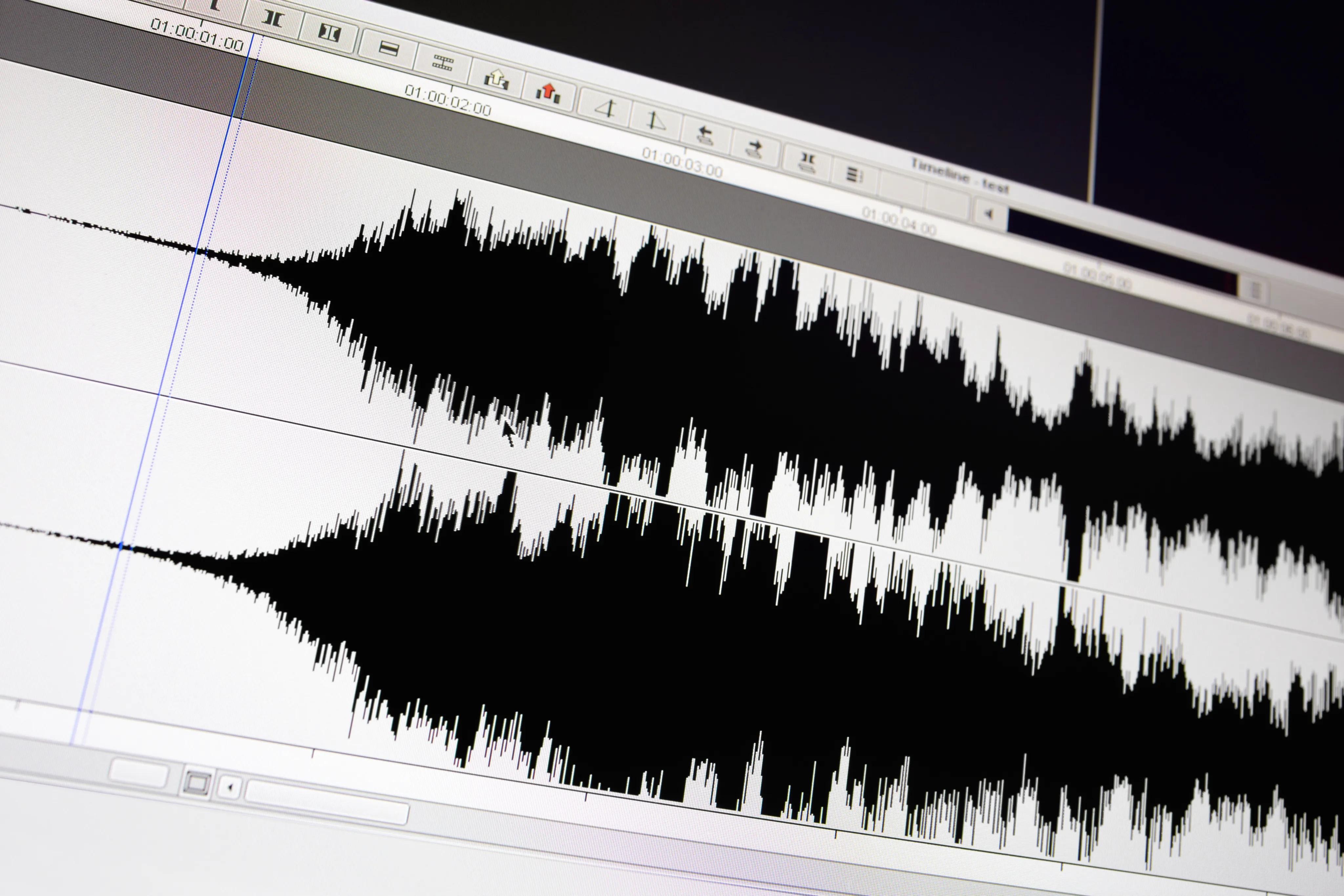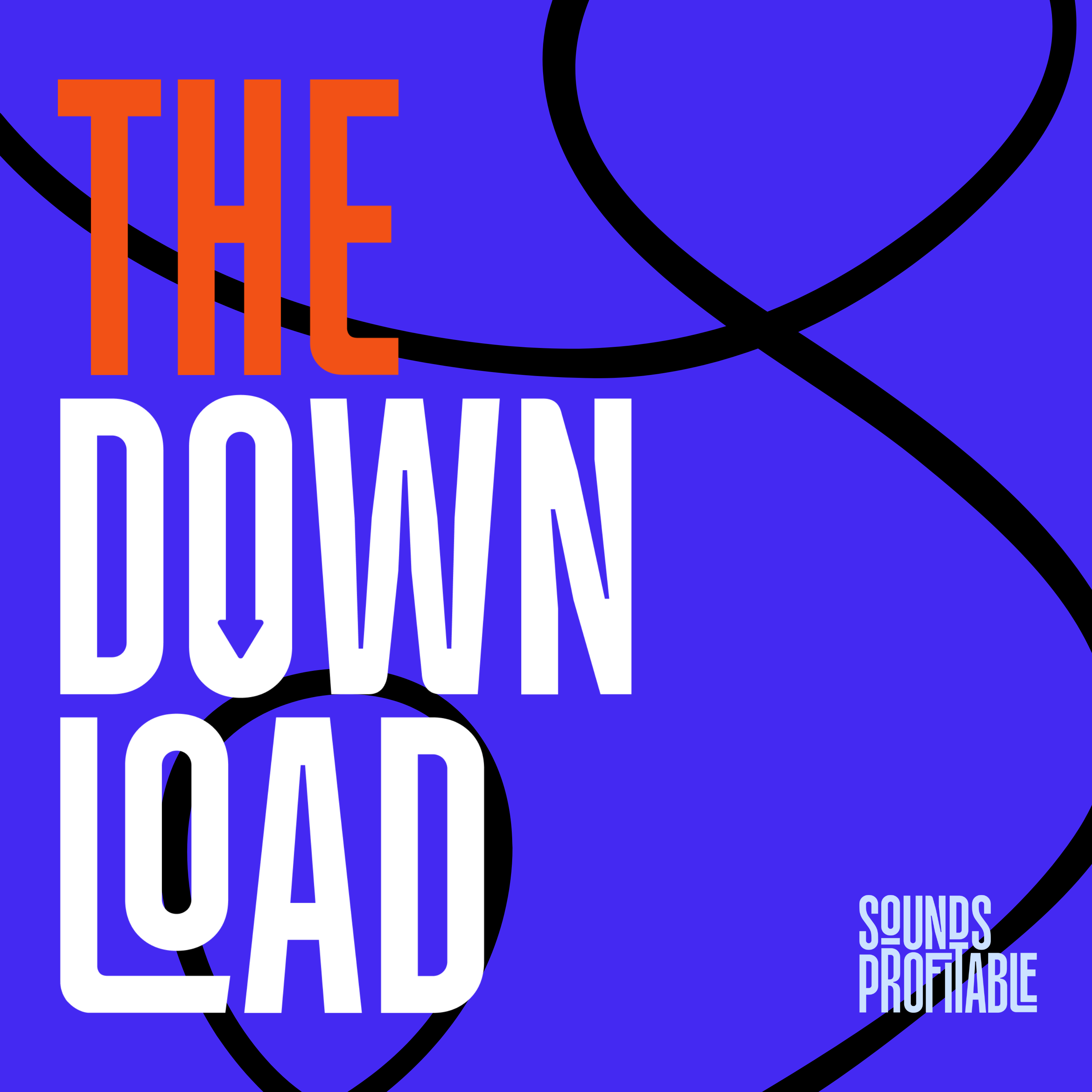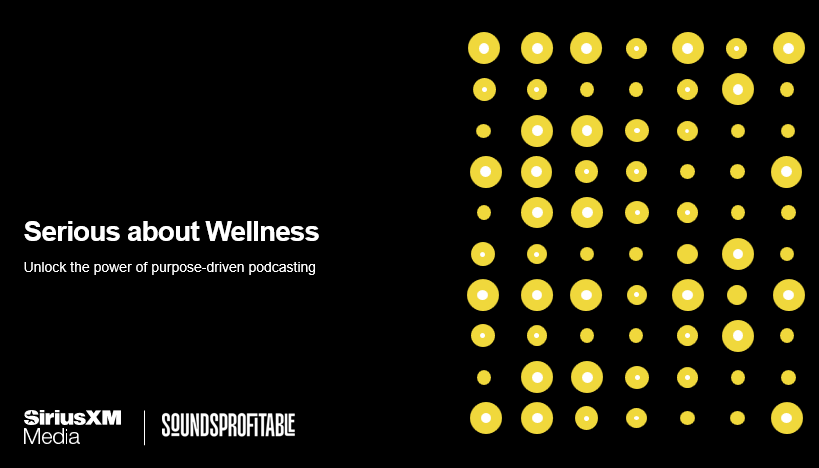Manuela: This is The Download from Sounds Profitable, the most important news from this week and why it matters to people in the business of podcasting. I’m Manuela Bedoya.
Shreya: And I’m Shreya Sharma.
Manuela: The Download is brought to you by Magellan AI. Track the trends in spend, ad load, podcasts on YouTube, and more with Magellan AI’s advertising benchmark report for Q4, available now. You can find a link in the description or visit Magellan dot AI.
Shreya: This week: Spotify’s podcast strategy shifts, Apple announces new categories and search options, and new ANA study finds advertising is wasting 13 billion dollars a year on junk ads.
Let’s get started.
Spotify’s podcast plan is going off the rails
Manuela: This Wednesday, Hot Pod’s Amrit Khalid posted coverage of Spotify’s evolving position in podcasting over the past month. The latest top story being the rocky end to the $20 million dollar podcast deal with Prince Harry and Meghan Markle’s production company Archewell Audio..
The latter is not a new story in the grand scheme of podcasting. Several flashy deals signed with celebrity podcasters have failed to impress, but it has clearly created a sore spot with Spotify. The company’s head of podcast innovation, Bill Simmons, took to his own podcast with a few choice words for the royal couple, calling them “grifters.” Last week Spotify spokesperson Emily Yeomans told Hot Pod that Spotify couldn’t comment on the specifics of the Archetypes deal, but then went on to point out Higher Ground has produced multiple series for Spotify, even while partnered with Audible. Meanwhile Archewell Audio has only managed 13 podcast episodes in two and a half years.
A quote from podcast strategist Eric Nuzum in an interview with Hot Pod:
“Spotify is in a very unique position of figuring out how to make things work in a way that will benefit them. But they haven’t done it yet.”
In this Monday’s issue of the Sounds Profitable newsletter, Tom Webster spoke on the royal podcast deal falling apart, and why he still has faith in celebrity podcasting’s power to bring new audiences to podcasting.“This is a medium that I believe is still capable of taking big swings at a vast blue ocean of people that haven’t made podcasts a part of their life. I don’t think the Sussexes were particularly successful at that, but it would be wrong to throw out the concept of celebrity podcasts simply because a few high profile examples didn’t actually produce good shows. Instead, let’s find ways to take known commodities and create new worlds with them.”
The newest Spotify Original podcast announcement, an unnamed show hosted by Trevor Noah, seems to indicate they’re moving in the general direction of what Webster describes. Unlike app-exclusive Spotify Originals in the past, this new Noah podcast will be available on all platforms and features a celebrity who has both established bona fides as a talk show host and years of successful podcast ventures under his belt.
As has been said a few times over the past few months, podcasting is transitioning out of the so-called crazy money phase of massive deals for the sake of making deals. If the Noah podcast and recent public release of formerly exclusive podcasts are any indication, it’s likely the next few months we’ll see a more cautious and reserved stable of new content from Spotify. A renewed focus on the concept of Spotify as a platform that happens to make podcasts, rather than a podcast production company with a walled garden.
Apple adds new podcast subcategories, podcast spotlight opportunities.
Shreya: On Tuesday Apple announced some new additions to Apple Podcasts, including new subcategories. The new subcategories are Mental Health, Relationships, Self-Improvement, Personal Journals, Entrepreneurship, Documentary, Parenting, Books, and Language Learning. From the Apple announcement:
“Each subcategory has its own charts, which display the Top Shows and Top Episodes available in a listener’s market. For example, a listener in the U.S. can browse the charts for Mental Health, which display the top 200 shows and top 200 episodes available in the U.S. based on a mix of listening, follows, and completion rate.”
In addition to new subcategories, Apple has “refreshed” recommendations within Apple Podcasts with new ways for podcasts and channels to be recommended and new artwork for existing sections. Apple Podcasts Essentials is a curated list of all-time favorite podcasts in each category selected by a global editorial team. Certain categories, with Comedy, Society & Culture, Sports, and True Crime specifically mentioned in the blog, will regularly showcase shows in categories like “Shows of the Month” and “Featured Channels and Creators.”
Search within Apple Podcasts has been updated to allow users to filter podcasts to one’s native language, with over twenty language options currently available. Creators are able to specify their show’s language either through Apple Podcasts Connect or via the RSS feed from their hosting provider.
More categories, charts, and ways for a podcast to be featured means better discoverability. The easier audiences can find the content they want to engage with, the more all areas of podcasting can thrive.
Advertisers, Here’s One Weird Trick From The ANA That Could Save You $20 Billion
Manuela: This Monday, Allison Schiff of AdExchanger published coverage of a long-awaited report on transparency in programmatic advertising. The study has a potential multi-billion dollar fix for the industry if implemented. From Schiff’s article:
“In the ANA’s estimation, advertisers unknowingly spend an astounding $13 billion annually on made-for-advertising (MFA) websites alone, which translates into 21% of all impressions and 15% of ad spend.”
The report is built from 123 million dollars in ad spend tied to 35.5 billion impressions. The currently-released figures are from part one of the report, with a second part scheduled to come out later this year. In this current portion, the ANA focuses on the twin issues of information asymmetry and misaligned incentives.
“Information asymmetry is when one party in a transaction has access to information that others do not. In the open web context, buyers often overpay for low-quality inventory because they have no purview into programmatic pricing or media quality.”
Schiff points out buyers prioritizing low-cost reach over quality inventory could have had an impact on encouraging the lack of transparency and prevalence of MFA inventory.
The ANA’s suggestions to improve the state of transparency in programmatic is similar to the advice given during their reports back in 2016 and 2017. From Schiff’s article:
“The ANA advises advertisers to sign direct supply contracts with specific data rights included and to press their partners for log-level data. Advertisers should run their ads on fewer sites and prioritize value over cost.”
Log-level data is easier said than done, as the ANA itself has run into issues obtaining log-level data while working on the report. ANA EVP Bill Duggan does clarify that there are steps buyers can take even without it. A quote from Duggan in Schiff’s article:
“You don’t need log files to know that you shouldn’t be running campaigns on 44,000 websites, that MFA sites are low-quality content or that you should own the contract with your supply chain partners.”
As mentioned in a previous issue of The Download when we covered the complicated production process of this ANA study, there are few things indicating the need for transparency in programmatic adtech moreso than the fact a study looking at transparency problems… struggled to even happen because of a lack of transparency.
Podcasting does not have a significant made-for-advertising content problem. As more companies tighten up scrutiny on what inventory they’re buying as a result of this study, podcasting has the opportunity to be a poster child of brand-suitable, worthwhile inventory.
Shreya: Finally, it’s time for our semi-regular roundup of articles we’re calling Quick Hits. These are articles that didn’t quite make the cut for today’s episode, but are still worth including in your weekend reading. This week:
- Registration is open for next week’s Sounds Profitable webinar for the upcoming study The Podcast Opportunity: Buyer Perceptions of Podcast Advertising. The presentation is on June 28th at 3p.m. Eastern Standard Time. The new study uncovers the latest thinking from buyers on the current state of podcasts advertising, and the strengths and weaknesses of buying the medium.
- In a bonus video from this week’s Product Deepdive, Podscibe’s Amelia Coomber demonstrates a new tool in the platform that uses ChatGPT, trained with the GARM framework, to generate a risk assessment for the podcast. The content rating system generates a visualization that shows what content is flagged, an automatic summary of what was said, and timestamps to check out the offending content directly.
- Streaming Audio and YouTube Measurement now offered in Magellan AI. As of last week, Magellan AI supports the measurement of streaming audio campaigns, as well as podcasts. Advertisers can now confirm impression delivery by channel and measure ad performance through custom KPIs. Magellan also launched the ability to measure YouTube impact.
- Acast launches new tech integrating publishers’ paywalls with podcast platforms. The tech, dubbed Acast+ Access, will enable paywalled news outlets to produce podcasts that are siloed and only accessible to those who pay for the site’s premium subscription.
- Ausha Launches Ausha PRO, a new sub-brand dedicated for Branded Podcasts. Ausha PRO includes the features of Ausha with the added benefits of enhanced support, advanced customization of promotional materials, multi-user access for collaborative management, and platform configuration performed in-house by Ausha staff.
Ausha Launches Ausha PRO, a new sub-brand dedicated for Branded Podcasts. Ausha PRO includes the features of Ausha with the added benefits of enhanced support, advanced customization of promotional materials, multi-user access for collaborative management, and platform configuration performed in-house by Ausha staff.
Manuela: And that was The Download, brought to you by Sounds Profitable! Today’s episode was built using Spooler and hosted on Art19. Find out more at Spooler.fm and Art19.com
I know we went through today’s stories fast, so be sure to check out the links to every article mentioned, right in your podcast listening app, or on SoundsProfitable.com/Podcast. And thank you for sticking with us as we bring you the top stories you might have missed from the past week. I’m Manuela Bedoya.
Shreya : And I’m Shreya Sharma. Our producers are Bryan Barletta, Gavin Gaddis, and Tom Webster. Special thanks to Art19 for hosting The Download. And thanks to you for joining us.
Robot?


 "
"


